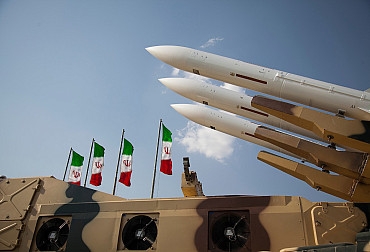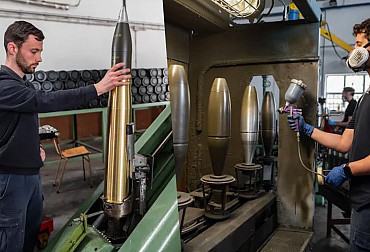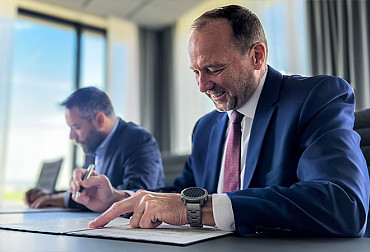An opportunity for European industry: Confident Ukrainian arms factories go all out and look for cooperation partners
Ukraine is massively expanding its defense industrial capabilities to meet the needs of its armed forces with significantly reduced foreign aid. To achieve this goal, Kyiv is increasing domestic production, forming strategic partnerships with Western countries, and establishing joint ventures with allied arms manufacturers. This mutually beneficial cooperation helps Ukraine push back Russian aggression while providing involved companies the opportunity to test their products directly on the battlefield.
Ukraine's prospects for maintaining long-term military strength with limited foreign assistance are excellent. The country is highly industrialized, with a well-educated and technically advanced population. During the Soviet era, Ukraine boasted a large arms industry, and even after gaining independence in 1991, it remained a major arms exporter. Although Russia's occupation of key industrial areas and the destruction of major weapons manufacturing centers (such as the Malyshev Tank Factory in Kharkiv) disrupted, they did not destroy Ukraine's strong foundation for an independent defense industry.
As recently as 2012, Ukraine was one of the world's top four arms exporters, but following Russian aggression two years later, it dropped to ninth place. Despite the ongoing, partially frozen conflict, Ukraine ranked 12th among arms exporters in 2019. Last year, the Ukrainian defense industry employed 300,000 workers across roughly 500 companies, 80% of which were private enterprises. After Russia’s invasion in February 2022, Ukrainian companies pioneered the integration of NATO and Soviet-era equipment, developed electronic warfare weapons, and led advancements in all forms of unmanned combat.
Throughout the war initiated by the Kremlin, Ukrainian arms manufacturers have successfully expanded production. Despite Russia’s efforts to cripple Ukraine’s industry, Kyiv now produces more weapons than before 2022. In June 2023, Ukrainian Prime Minister Denys Shmyhal stated that through cooperation with international industries and localized production, Ukraine could become "a hub for modern weapons manufacturing in Europe." Later in December, President Volodymyr Zelensky assigned Ukraine the task of becoming "strong and efficient enough" to resist Russian aggression independently. This goal can only be achieved through sufficient domestic arms production.
"Just in the first half of this year, Ukraine produced 25 times more artillery and mortar ammunition than in all of 2022," Zelensky announced in early October. According to him, Ukraine is now capable of producing four million drones per year, with 1.5 million units already ordered this year. "We are manufacturing our Bohdana howitzers at a rate of 15 units per month, sometimes as many as 20."
Kyiv is building an international coalition aimed at developing the defense industrial base in Ukraine and across Central and Eastern Europe. Since the beginning of the Russia-Ukraine war, Ukraine has been forging partnerships with foreign entities to transfer production or service of supplied systems to Ukraine, agree on joint production models, focus research and development of new weapons outside of Ukraine, and motivate allies to finance joint activities. These international initiatives include transferring Ukrainian technology and deploying Ukrainian specialists in foreign companies, allowing Kyiv to produce in locations safe from Russian attacks.
Earlier this month, the European Union opened its Defense Innovation Office in Kyiv, aiming to foster cooperation between the Ukrainian and European defense industries. This office is part of the EU’s defense industrial strategy adopted in March, and one of its tasks is to connect EU startups and innovators with Ukraine’s defense industry and armed forces. It will also strengthen Ukraine’s integration into the European defense equipment market and help local arms manufacturers and startups gain access to EU funding for developing military technologies. A lack of funding is one of the main obstacles to increasing Ukrainian weapons production. The Kyiv office could also help EU defense firms leverage Ukraine’s battlefield experience and find partners in a country at the forefront of military drone development, providing them an advantage over global competitors. Over 500 companies in Ukraine are involved in drone manufacturing, with at least 150 working on artificial intelligence applications and more than 110 developing electronic warfare tools.
Leading the European arms manufacturers supporting Kyiv is Germany’s Rheinmetall. In May of last year, the company signed a strategic agreement with Ukraine’s Ukroboronprom to maintain and repair armored vehicles supplied by Germany. In October, the two companies registered a joint venture. The Germans also plan to begin manufacturing vehicles in Ukraine, such as TPz Fuchs armored personnel carriers, Lynx infantry fighting vehicles, and Leopard tanks. According to Ukrainian Minister of Strategic Industries, Oleksandr Kamyshin, production of Lynx infantry fighting vehicles is expected to start this year: "The first such vehicle will be produced in Ukraine by the end of the year."
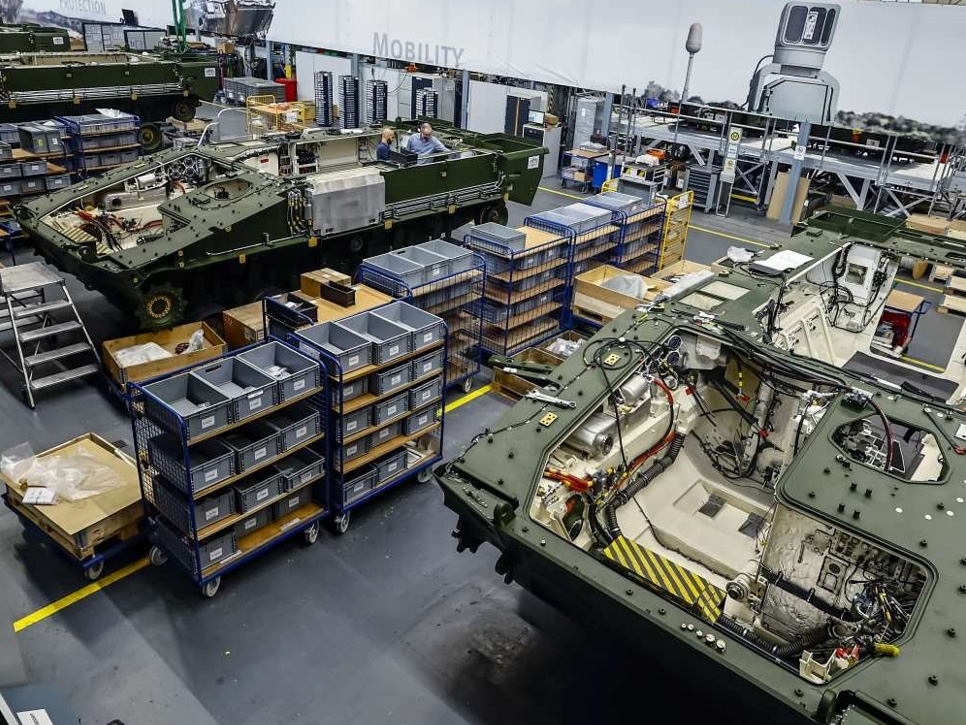
The German-French company KNDS (KMW+Nexter Defense Systems) is not far behind. "KNDS has opened a subsidiary in Kyiv under the name KNDS Ukraine LLC to support cooperation between Ukrainian government institutions, the Ukrainian defense industry, and KNDS," the group announced in early October. "The goal of this initiative is to consolidate Ukraine’s industry and enable it to more effectively maintain, repair, and overhaul KNDS systems—such as Leopard 1 and 2 tanks, the CAESAr artillery system, the AMX 10RC, and the PzH 2000 self-propelled howitzer—thus significantly improving their operational availability." KNDS also plans to open production lines in Ukraine for 155mm artillery shells and spare parts using "cutting-edge technologies."
The French group Thales has signed three agreements with Ukraine related to opening a facility and maintaining electronic warfare systems. The first agreement outlines the French company’s intention to create a joint venture in Ukraine that will facilitate the supply and operation of equipment in its defense systems portfolio, including electronic warfare, tactical communications, air defense systems, and radars. The second agreement focuses on electronic warfare, with Thales responsible for extensive maintenance, testing, and specialized training of Ukrainian personnel, along with developing local capacities for maintenance to reduce repair cycles and improve operational readiness. The third agreement specializes in drone and software development, with Thales aiming to jointly develop and produce an unmanned aerial system capable of carrying and deploying munitions.
Even smaller EU members are not lagging behind. In August last year, Ukraine and Sweden announced plans to manufacture CV90 infantry fighting vehicles in Ukraine. "Today we’ve clarified our agreement on joint production of CV90s in Ukraine, localization of production, and repairs. We will do everything possible to ensure that the first CV90 built in Ukraine appears as soon as possible," said President Zelensky. Czech companies (Aero Vodochody, Czechoslovak Group, Česká zbrojovka, Sellier & Bellot) are also involved in joint projects with Ukraine, focusing mainly on ammunition and small arms production, as well as repairs of T-64 and T-72 tanks. The joint Czech-Ukrainian venture UAC is producing Leleka LR drones, developed by Ukrainian company DeViro, in a Czech factory. The Czechoslovak Group plans to begin ammunition production with Ukrainian arms manufacturer Ukrainian Bronetechnika early next year. "We plan to produce and deliver about 100,000 rounds of ammunition next year and over 300,000 rounds in 2026. The equipment preparation process has already begun," said Vladyslav Belbas, director of the Ukrainian arms manufacturer.
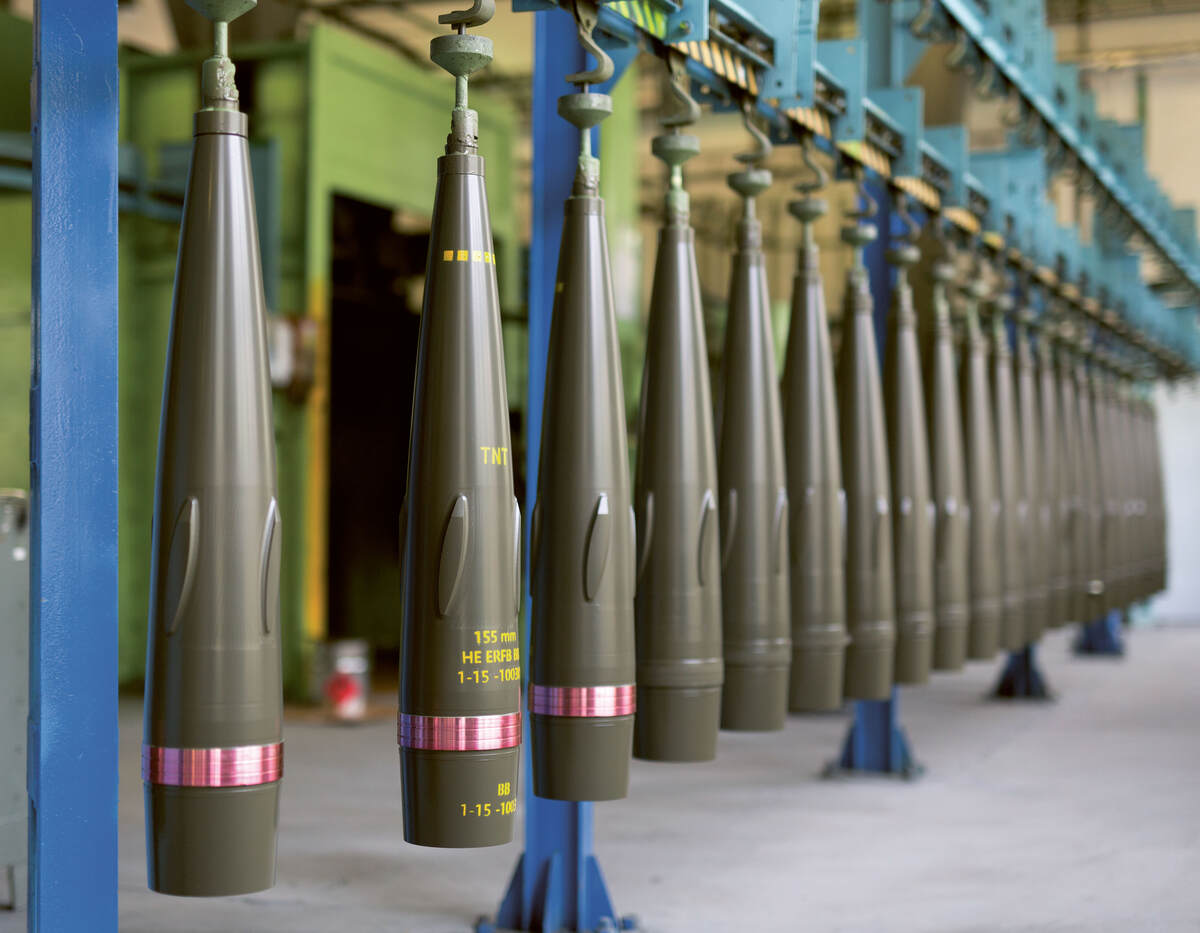
In late September, Denmark announced plans to establish its own defense industry center in Kyiv, strengthening opportunities for Danish companies to work directly with Ukrainian defense firms. The center is expected to be operational by the end of the year. "The situation in Ukraine clearly shows that wars are not won only on the battlefield but also largely in industry," said Danish Minister of Industry and Trade, Morten Bødskov. "With this new center, we are creating a launching pad for developmental cooperation and increased trade, so Denmark can continue contributing to Ukraine’s fight for freedom."
Countries outside the EU, such as the United States and Turkey, are also actively developing defense industrial cooperation with Kyiv. U.S. company AeroVironment has signed an agreement with a Ukrainian company to localize the production of Switchblade 600 drones. Turkey is building a new plant in Ukraine to manufacture Bayraktar TB2 drones and establish a service center, which is expected to be operational early next year.
If Western states continue their support, Ukraine has a chance to stand on its own in the future. In the coming years, mutual cooperation could benefit both European and Ukrainian arms manufacturers, reducing the need for U.S. military aid. The EU has a unique opportunity to make strategic investments in its defense industry, enhancing Europe’s ability to support Kyiv, Europeanizing supply chains, and decreasing long-term reliance on American arms manufacturers. To seize these geopolitical advantages, both large (France, Germany) and small (Czech Republic, Denmark, Sweden) EU members must continue deepening their industrial cooperation with Ukraine. As Ukraine modernizes its production lines to meet NATO standards, Kyiv could become a large-scale manufacturing base for the entire Alliance after winning the war.





